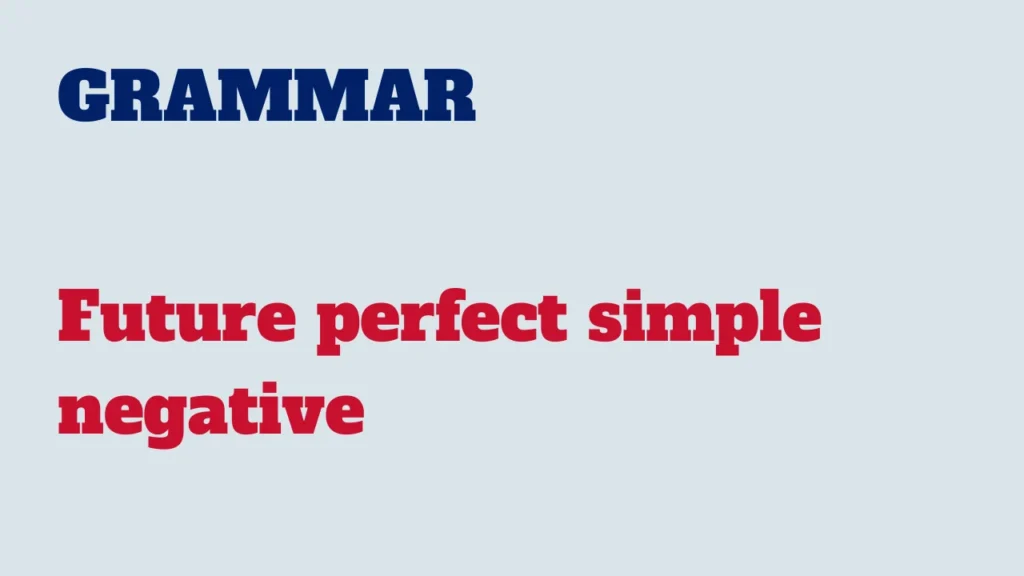In the future perfect simple tense, negative sentences are created by using the auxiliary verb “will not” (”won’t”) after the subject, then “have“, then the past participle of the main verb, and any additional information or complements.

Here’s how to construct future perfect simple negative sentences:
Structure:
Subject + will not (won’t) + have + Past participle of the main verb + Complements or additional information
Examples:
I will not have completed the assignment by next Monday.
He won’t have submitted his report by the deadline.
We will not have finished our project by the time they arrive.
They will not have graduated from college by the end of the semester.
He won’t have visited all the museums by the time he leaves.
Table: Future perfect simple – negative
| SUBJECT PRONOUN | FUTURE PERFECT NEGATIVE | EXAMPLES |
|---|---|---|
| I | will not have + past participle | I will not have completed the project by then. |
| You | will not have + past participle | You will not have visited the museum by 5 PM. |
| He/She/It | will not have + past participle | She will not have finished her book by Friday. |
| We | will not have + past participle | We will not have received the package by then. |
| You (plural) | will not have + past participle | You will not have painted the room by tonight. |
| They | will not have + past participle | They will not have fixed the issue by Monday. |
Usage of future perfect simple – negative:
Denying completion of an action by a specific time in the future:
Used to express that an action will not be completed before a specified point or period in the future.
Example:
I won’t have finished reading the book by the weekend.
Negating anticipated achievements or accomplishments:
Used to deny expectations about achievements or accomplishments that were anticipated to occur by a certain future moment.
Example:
She won’t have achieved her fitness goals by the end of the year.
Stating future absence of experiences:
Can be employed to express that certain experiences or events will not have occurred by a particular future time.
Example:
They will not have visited the new exhibit by the time the museum closes.
When NOT to use future perfect – negative:
Avoid using the future perfect (negative) tense unless the action you talk about will (not) be completed before a specific future deadline. If there’s no mention of a deadline, opt for the simple future (negative) tense.
Correct: Linda will not depart.
Incorrect: Linda will not have departed.
Understanding how to form and use future perfect simple negative sentences allows you to express the absence of completed actions or achievements anticipated to occur before a specified future moment. Practice constructing negative sentences in the future perfect simple tense to enhance your language skills. Happy learning!



